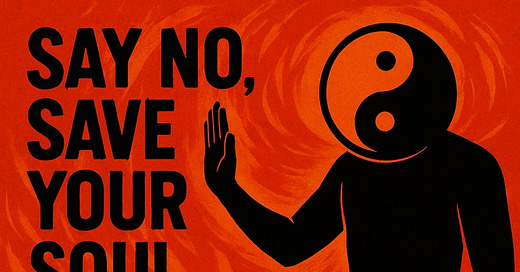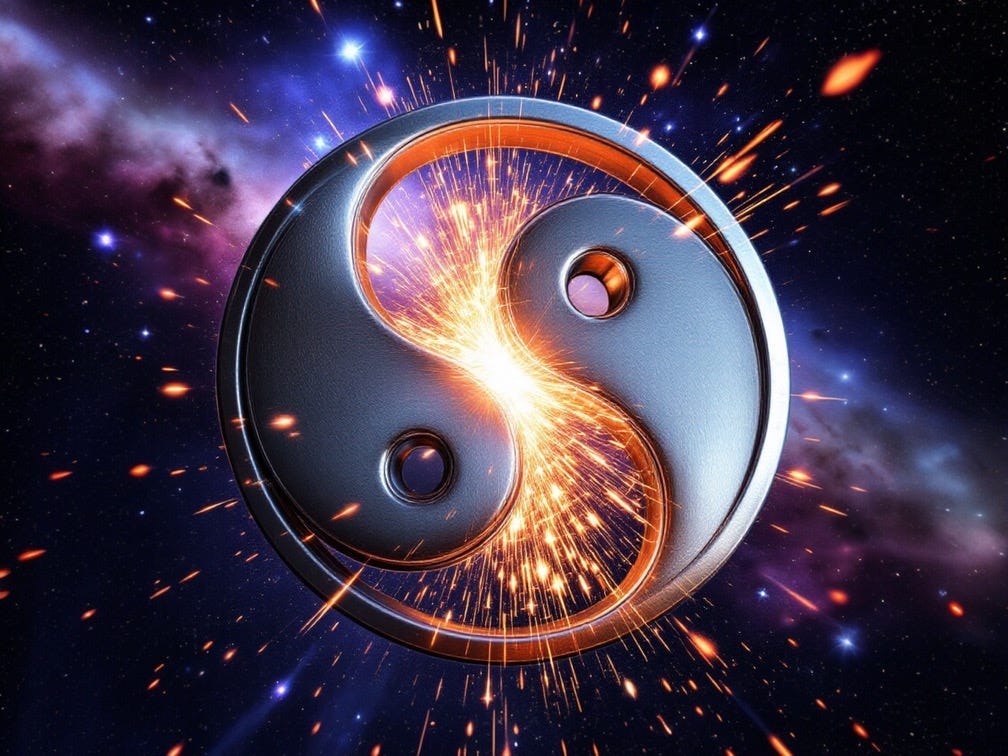For a good part of my early life, I was a “yes” man.
Not in the corporate-ladder-climbing sense, but in the deeply human, often self-sabotaging sense where I said yes when I wanted to say no, offering my time when I was exhausted, giving my heart when I was barely holding my own together.
I said yes because I feared rejection, disapproval, or conflict. I believed, like so many of us are conditioned to believe, that to be loved, respected, or seen, I had to be endlessly available.
But what I’ve learned, often painfully is that every time we say yes to something that violates our deeper truth, we say no to ourselves. And that erosion of integrity may be subtle at first, but over time, it hollows us out.
Nathaniel Branden, the brilliant psychologist and onetime acolyte of Ayn Rand, wrote extensively on the pillars of self-esteem. One of his great insights was that self-esteem is built not from achievements or applause, but from the practice of living in alignment with one’s own values.
To act against our own judgment, to betray our own boundaries of integrity, is to chip away at the very foundation of self-worth. Branden made me confront an uncomfortable truth, namely, that it’s not the world’s disrespect that wounds us most, it’s our own. When we abandon ourselves, we become complicit in our own diminishment.
What makes saying no so hard is the primal fear beneath it. We fear rejection. We fear being labeled difficult or selfish. We fear the loss of connection, the loss of opportunity, the loss of love. But I’ve come to see that “no” is not inherently negative or destructive; it’s a tool of discernment. When wielded with honesty and care, “no” is an act of love—not just for ourselves, but for others, because it clarifies who we are and what we truly have to offer.
An Eastern Philosophical Foundation of No
Through the works of the Tao Te Ching, the Bhagavad Gita, and the I Ching, I found even deeper grounding for this practice.
The Tao Te Ching teaches, “He who stands on tiptoe is not steady. He who tries to shine dims his own light.” When we contort ourselves to meet others’ expectations, when we stretch beyond our capacity to please, we abandon the natural flow of the Tao.
We become brittle, inauthentic, easily toppled by the slightest wind. True strength, Lao Tzu reminds us, comes from rootedness, from allowing ourselves to be as we are—not as we think others want us to be.
The Bhagavad Gita offers a similar wisdom. Krishna instructs Arjuna to act in accordance with his dharma, his sacred duty, without attachment to the approval of others or the outcome of his actions. “Better to fail in your own dharma than succeed in the dharma of another,” Krishna says.
For me, this has become a mantra: I would rather disappoint someone by honoring my truth than impress them by betraying it.
The I Ching, too, speaks to this dance of boundaries and flow. Hexagram 10, “Treading,” reminds us that moving through life with grace means walking carefully on the backs of tigers—not with aggression, but with mindfulness and respect. To say no with skill is to tread well — firm but not forceful, respectful but not self-erasing.
The most profound shift I’ve experienced is that saying no is not an act of rejection, but of affirmation. When I say no to what drains me, I say yes to what nourishes me. When I say no to the demands that violate my spirit, I say yes to the quiet, steady work of becoming who I am.
So here’s my advice, hard-earned and still imperfectly practiced: Start small. Practice saying no in low-stakes moments. Notice the discomfort, the old fears that rise up, and let them pass without letting them dictate your choice.
Speak your no with clarity and kindness, without apology or justification. Remember that every no that honors your truth strengthens the muscle of integrity. The good news is that over time, that muscle becomes the spine that holds your life upright.
The world may not always applaud your no. But your soul will. And in the end, that’s the only applause that truly matters.
If the Daily Chocolate Taoist nomadic wisdom lights up your day, fuels your mind, or gives you a fresh perspective, I’d love your support as a paid member!
Or, if you’re feeling generous, drop a little (or a lot) of dirty chai latte love my way—every bit helps keep this Taoist journey flowing.
I’m committed to delivering high-quality, thought-provoking features straight to your inbox—no paywalls, no fluff, just raw, unfiltered wisdom on what it means to be human in today’s paradoxical, mysterious, and uncertain world.
Your support fuels my full-time mission, and I appreciate every single contribution. Let’s keep this energy going!
Diamond Michael Scott
aka The Chocolate Taoist






Thank you for all of these excellent reasons why I turned you down for your book group. Love this: “self-esteem is built not from achievements or applause, but from the practice of living in alignment with one’s own values.” OTOH this was so wise it kinda makes me want to say “yes.” You’re a tricky one, D-M!